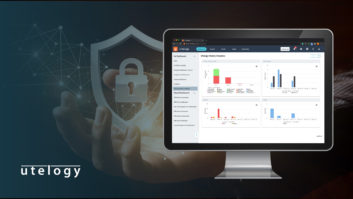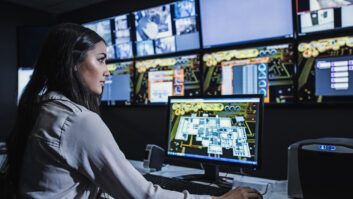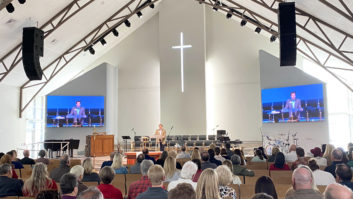 The main change within the AV industry has recently been, and will continue to be, the move towards network-based solutions. The vast majority of AV equipment, from a passive display screen to a fully integrated control system, will sit on a network – whether that is for service requirements, asset management or control.
The main change within the AV industry has recently been, and will continue to be, the move towards network-based solutions. The vast majority of AV equipment, from a passive display screen to a fully integrated control system, will sit on a network – whether that is for service requirements, asset management or control.
The AV industry needs to adapt and evolve to accommodate these changes. As the Internet of Things (IoT) becomes more prevalent in our daily business and personal lives, the AV industry needs to manufacture products and solutions capable of communicating in this way.
Artificial Intelligence is everywhere in AV technology, and it’ll continue to play a huge part in the industry going forward. We’re already seeing more and more innovative uses of AI, especially in areas such as digital signage. At Universal AV we work with digital signage platforms that can dynamically modify displayed content in real-time based on the viewer’s interactions with the screen, adapting seamlessly to the demographics of the audience present in the room.
We expect that, especially for corporate AV, we’ll see an increase in organisations utilising AI technology to welcome their visitors, where dedicated receptionists aren’t an option. Tablets and touchscreens, which many companies are already using, will continue to speed up the signing-in process and advanced camera technology will recognise repeat visitors to deliver a warm, professional and personalised service.”
GET SMART!
An emerging area for growth in the AV technology industry lies in the development of smart buildings, where organisations can leverage technology to monitor how their spaces are used.
By using IoT technology, organisations can gain real-time insights into how their spaces are used. For example, if meeting rooms designed for eight people are primarily booked for one-on-one interviews, it suggests a need for reevaluating facility usage.
Tools such as occupancy sensors, room booking systems, and desk booking software, offered by integrators like ourselves, can then empower organisations to make informed decisions based on this data.
AVaaS or AV as a Service is also becoming increasingly popular, allowing organisations to spread the cost of purchasing AV equipment over a fixed period. Throughout this duration, they enjoy benefits such as regular hardware and software updates, service and maintenance contracts, and the ability to scale their technology as needed.
As AV Technology continues to evolve and become engrained in more aspects of our day-to-day lives, there’s likely to be a bigger number of organisations investing in AV as a Service, as this allows a more flexible approach to purchasing and implementing new technologies.
BRIGHT FUTURE
The future of AV technology is bright and the need for AV technology and solutions is growing, despite 2023 being marked by global economic weakness. As the world continues its post-Covid recovery, organisations are continuing to use audio-visual technology to adapt to the new work and learning landscape.
2024 promises to be another exciting year of innovation for AV technology, and at Universal AV we’re looking forward to seeing the AV industry progress even further.







